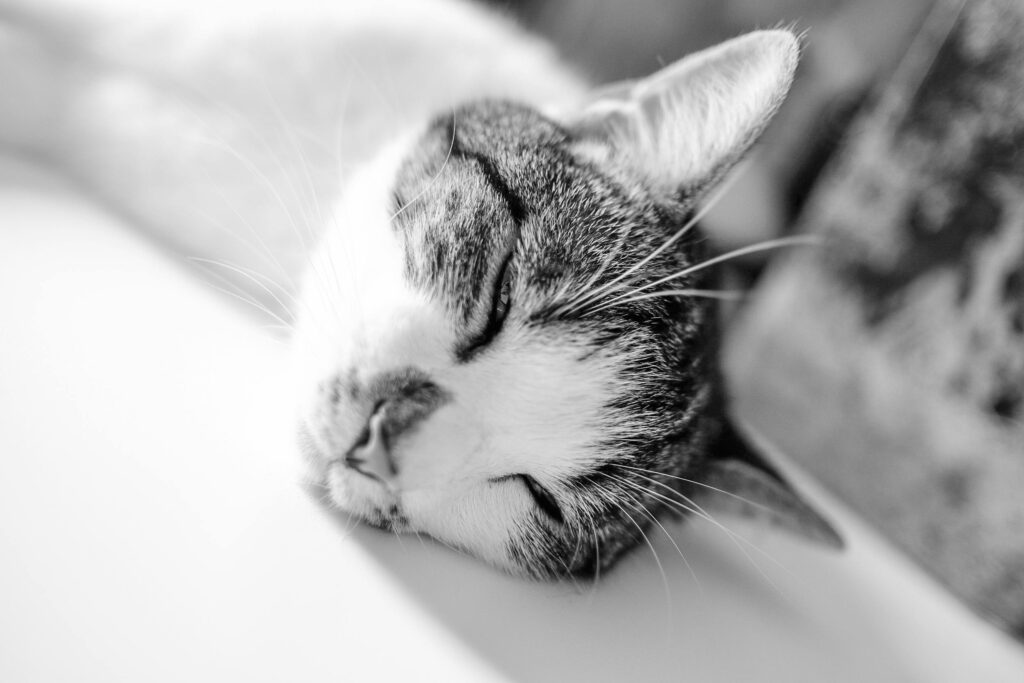
Purring is among the most recognized cat sounds, which is believed to be a positive symbol. A warm lap snuggled with a purring cat is a popular choice among cats. Purring is a typical feline sound and can be employed in both positive and negative ways. However, the intensity, frequency, and reasons that cause this sound can differ. Indeed, it is not the case that all cats purr and the phenomenon may occur because of a range of factors.
Table of Contents
What exactly is purr?
It is actually a complicated sound. The purr is thought to be caused by the vibration of the larynx of cats while they breathe. Cats purr while exhaling and inhaling. They are also able to make other noises at the same time: 1.! The majority of cat species are able to purr. However, the Lions can’t.
Purring’s functions are largely related to purring.
Purring cats are generally thought of as relaxed and content and material with the life they live. That’s the case, and the purr is certainly an indication of happiness. However, many lesser-known causes can be attributed to the purr.
Domestic cats can use purrs as a learned behavior to attract interest from their pet owners. Cats are awestruck by attention and quickly discover how to get it. Excellent methods to get attention from their loving humans!
If the queen has kittens in her litter, she purrs to direct the kittens in the direction of her. Kittens are born vulnerable as they are blind and deaf; however, they can detect the sound of purr in order to direct them.
Cats can also purr when they are anxious or in distress. The purr can serve two purposes during these situations. Purring is a way to release endorphins that calm the cat when it is stressed or scared. Furthermore, purring has been observed to work at frequencies that increase healing and development, 2. so it could be beneficial during illness and injuries.
Why don’t some cats purr?
We now know the basics of purring,d what causes it, and why it happens. We can now tackle the question of why certain cats don’t care and stop at a certain point. It can be a bit upsetting for pet owners to see a purring cat, especially when it’s generally regarded as an affirmation and a sign of feline love.
- Individuality
Certain cats seem to prefer other ways, for instance, together the body language of the way they move, as well as other sounds like a meow. Cats can show that they’re material and happy with a sequence of long, slow blinks. This shows confidence and affection from your cat!
- The people who created it have never learned.
Cats depend heavily upon their experiences in the beginning in order to develop their behavior. Cats may not purr in the event that they were separated from their mother or perhaps never had the opportunity to hear the sound of her purr. If your cat was an animal that was feral or even had an unruly mother, it could also have an important role. Feral cats tend to be quieter than domestic companions, which could be to protect themselves from predators.
Also, it is possible that certain cats are not able to purr! It could be that they have an anatomy-related variation in the vocal cords or an issue with the nervous system that communicates the desire to purr. If your cat hasn’t purred, that could be normal for their breed and is nothing to be worried about.
3.) Laryngeal Disease
If your cat used to purr but is now not in the past, there could be an issue with their vocal cords. It could also impact other vocalizations like meowing. It can also cause a decrease in appetite as well as a reduction in consumption of water. Possible issues include cancer, inflammation, and neurological diseases. If your cat is losing the voice of their pet or is to be sick, you should seek vet care.
4.) Other illnesses
Cats possess strong survival instincts! In the event of injury or illness, they tend to retreat to their areas, which are dark and secure. If your cat’s behavior is quieter than normal, hiding or not eating, it could be that they are sick. Please bring them to the veterinarian for an examination!
- Stress
Like the previous examples, Stress and anxiety may trigger major behavioral changes in cats. The sensitive cats are highly responsive to any change. They can trigger anxiety from new pets, new family members, and a change in the routine, environment ac, activities, or loud sounds, among others. Cats who are stressed can show various ways to show Stress, such as the cat escaping more often, leaving toilets on the floor, or scratching furniture. It can also cause altered interaction with the other animals and their owners, such as aggression, changing vocalizations, and changes in eating patterns.
If your cat’s behavior has changed and they are being more agitated at home, which includes changes in their purr or other behavior with you, it could be a root cause. Take competent guidance from a vet doctor or require the services of the services of a certified behaviorist.
Purring: Final thoughts
The purr has been regarded as a common feline sound. However, there are a few cats that purr! If your cat hasn’t purred before, it might be due to the fact that they did not learn or did not want to express themselves through this method. However, if your cat used to be an exuberant purrer but has abruptly stopped, it could be a behavioral or medical problem. Take your pet to the veterinarian if you’re worried regarding their wellbeing.
